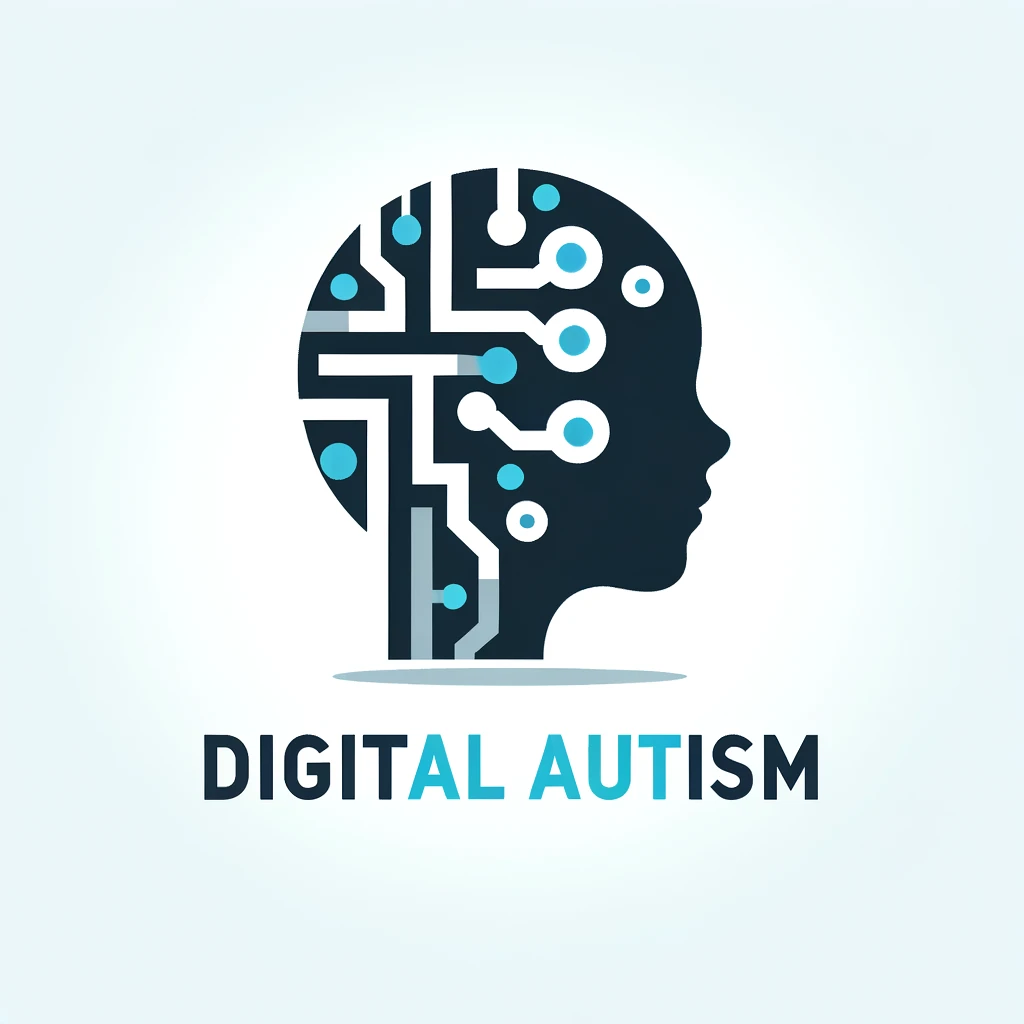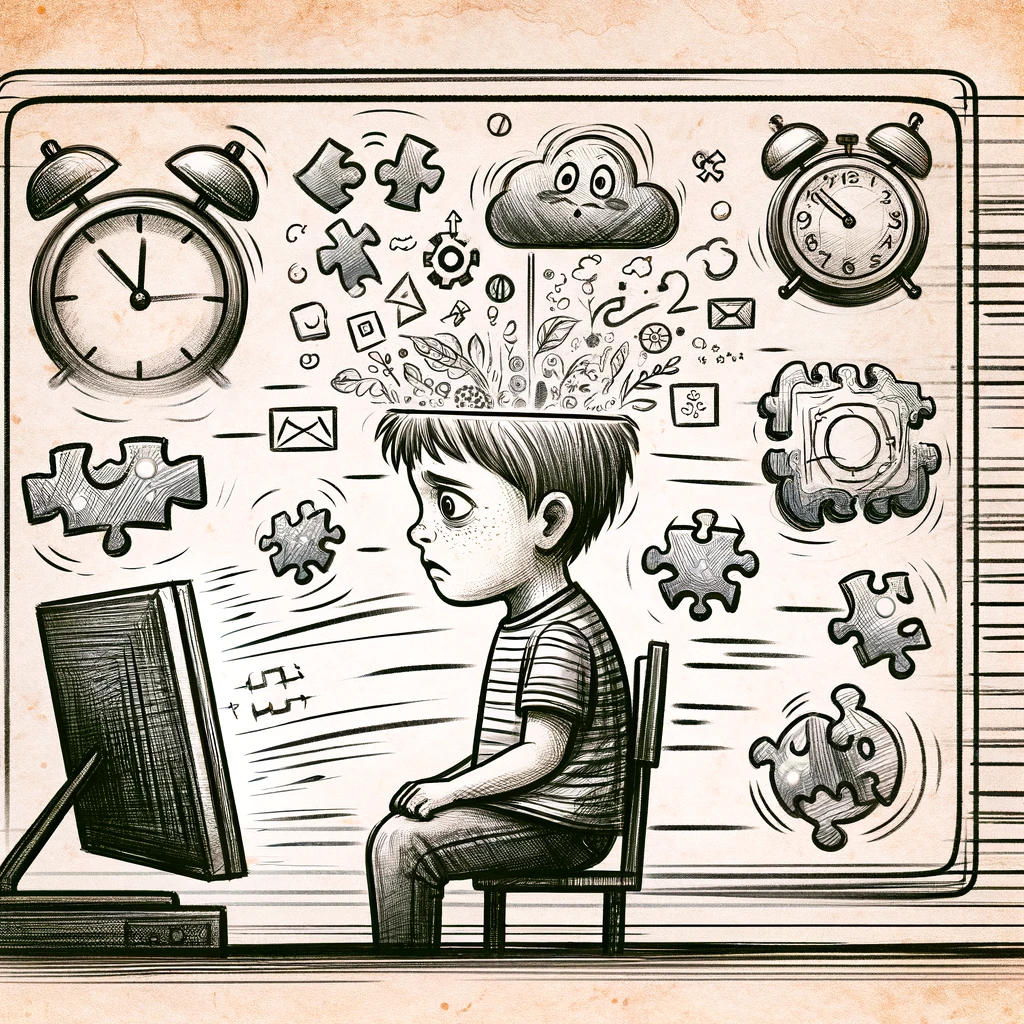Virtual autism assessments are likely here to stay
Virtual autism assessments have become more common during the pandemic and are showing promise as a lasting option for diagnosis.
Autism-like behaviors in children and young adults, such as impaired social skills and communication difficulties, attributed to excessive early exposure to digital screens.



Cognitive Development: Excessive screen time can lead to attention deficits, reduced memory capacity, and hindered problem-solving abilities.
Attention Deficits Excessive screen time can result in shorter attention spans in children and young adults. Engaging with rapidly changing stimuli on screens—like video games or fast-paced videos—may condition the brain to expect constant new inputs. This can make sustained attention on slower-paced tasks more challenging, potentially affecting learning in traditional educational settings.
Reduced Memory Capacity Frequent intera ction with digital devices might impact the way memory is formed and utilized. The constant availability of information might reduce the need to retain and recall information, potentially leading to a decrease in memory capacity. Furthermore, the nature of information consumption on digital platforms—often shallow and wide rather than deep and focused—could impact the ability to form strong, long-term memories.
Hindered Problem-Solving Abilities Problem-solving often requires deep thinking and the ability to connect disparate pieces of information over extended periods. High amounts of screen time, particularly with content that does not challenge the brain to think critically or creatively, might hinder the development of these skills. Moreover, the quick and easy access to answers or solutions online can reduce the necessity and frequency of practicing problem-solving skills.

Social Interaction: It may cause difficulties in social communication and interaction, impacting the ability to form relationships.
Difficulties in Social Communication Excessive use of digital devices can lead to reduced face-to-face interactions, which are crucial for developing nuanced social communication skills. These skills include interpreting body language, tone of voice, and facial expressions—subtleties that are often lost or differently represented in digital communication. A reliance on digital forms of interaction might make it challenging for individuals, especially young children and teenagers, to engage effectively in in-person social contexts.
Impact on Relationship Formation Building and maintaining relationships typically require empathy, emotional intelligence, and the ability to engage in reciprocal social exchanges—traits best developed through direct interpersonal interactions. If screen time replaces significant amounts of personal interaction, it might impede the development of these abilities. This could result in difficulties in forming deep and meaningful relationships, as the person may struggle with understanding emotional cues and responding appropriately in social situations.
Long-term Social Consequences The long-term effects might include increased social isolation and loneliness, which have been linked to various mental health issues such as anxiety and depression. Furthermore, poor social skills can impact academic and later professional success, as both arenas often require teamwork and effective communication.

Physical Health: It can contribute to sedentary lifestyles, resulting in obesity, vision issues, and other health concerns.
Contribution to Sedentary Lifestyles High amounts of screen time typically involve prolonged periods of sitting, which contributes to a sedentary lifestyle. Lack of physical activity is well-documented as a risk factor for various health issues. In children and adults alike, a sedentary lifestyle can decrease overall physical fitness, affecting cardiovascular health, muscle development, and metabolic functions.
Obesity One of the direct consequences of a sedentary lifestyle is an increased risk of obesity. Excessive screen time often correlates with lower levels of physical activity and can also be associated with poor eating habits, such as snacking on high-calorie, low-nutrient foods during screen engagement. Obesity is linked to numerous health problems, including type 2 diabetes, heart disease, and joint issues.
Vision Issues Prolonged exposure to screens can lead to digital eye strain, characterized by symptoms such as dry eyes, irritation, blurred vision, and headaches. Over time, consistent strain without adequate breaks can lead to more significant vision issues. Moreover, the blue light emitted by screens is thought to impact sleep quality by interfering with melatonin production, which can have broader health implications.
Join us in pioneering a brighter future for our children by supporting our petition for increased research funding into the effects of screen time on child development. Your signature can help unlock vital resources needed to explore the potential connections between digital exposure and ASD-like behaviors, ensuring that our kids grow up in a world where technology is a tool for development, not a barrier. Together, we can advocate for a balanced digital diet, backed by science, that nurtures young minds and fosters healthy growth. Sign today, and be part of the movement that prioritizes the well-being of the next generation in our increasingly digital world.
🖊️ DJ from Brooklyn supports this.
🖊️ Amy from Queens supports this.
🖊️ Teresa from Harlem supports this.
🖊️ 3 people have signed this petition and support this cause.
Virtual autism assessments have become more common during the pandemic and are showing promise as a lasting option for diagnosis.
A new tablet-based screening application for autism spectrum disorder may improve early detection and intervention.
Virtual Reality guided simulations can help autistic individuals adapt to their surroundings, addressing sensory processing and reducing anxiety.
A new study using VR in autism research offers insights into brain dynamics during social behavior.
Virtual autism therapy continues to be covered by Medicare through at least the end of 2023, with its long-term future under consideration.
article>